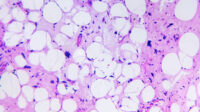You took the Pathology boards and then your day was ruined when you received notification that you failed the exam. That news is tough to take. The pathology boards are notoriously rigorous. They are almost a world apart from boards in other specialties; first, because they are eight hours long and secondly because there are two specific sections to pass before Board Certification is granted. For many, that is the definition of a nightmare.
You know the drill; you have to pass Anatomic Pathology (AP) and Clinical Pathology (CP) to become a board-certified pathologist. According to the American Board of Pathology (ABP) newsletter, the pass rate in 2014 looked like this:
First-time test takers pass rate:
- AP: 91%
- CP: 90%
Repeat test takers pass rate:
- AP: 37%
- CP: 35%
It seems that when it comes to the pathology boards, there are no standard predictors of success.
According to posts on the SDN forum, not even education is a guarantee.
“The AP/CP exam is very tough. Anyone can fail it. I know some very smart people from prestigious programs who have failed at least one part.”
Reddit.com’s pathology forum posts show that the exam doesn’t imbue test takers with confidence either.
“I (and literally everyone else there) left CP thinking we failed for sure. I honestly am still not sure how I passed… I would love to know the score % required for passing.”
If you failed, here are the two most important logistical items you need to know.
1: You can take the exam repeatedly during your five-year period of board eligibility. The American Board of Pathology lists all the details here.
2: The dates, deadlines, and fees for the 2017 exams are listed here. (2016 is nearly over and so are this year’s testing dates.)
If you’re studying for the retake, we can help. Our Pathology Board Pass and Partial Pass Rate is 74.2%. The national average is 68%. That’s cause for some comfort. It takes strategy to pass a day-long exam. The physical demands are tough enough. Knowing how and what to study is essential to mental and emotional success, not to mention survival.
Look at the outline of our approach to the pathology boards and then use our system to prepare yourself for success. Becoming a board certified pathologist is in your future- and you can take that all the way to the blood bank.




